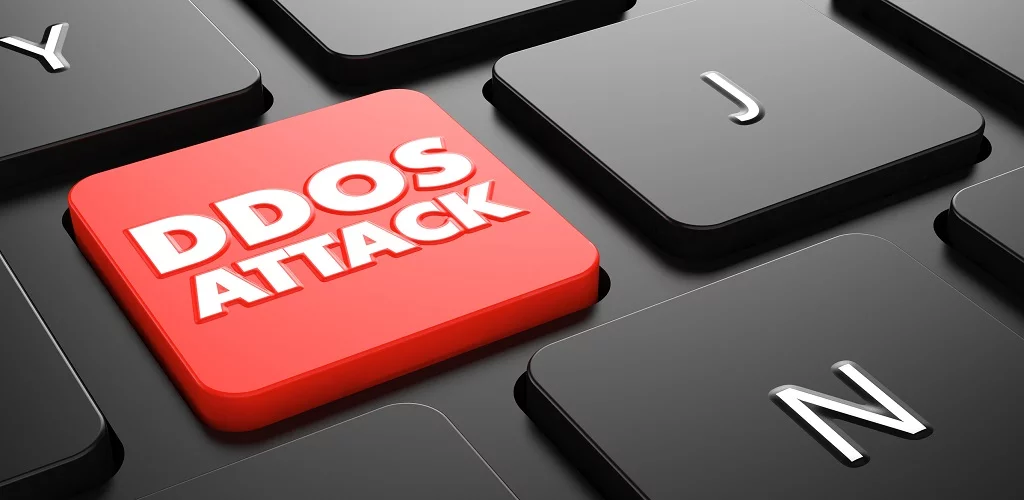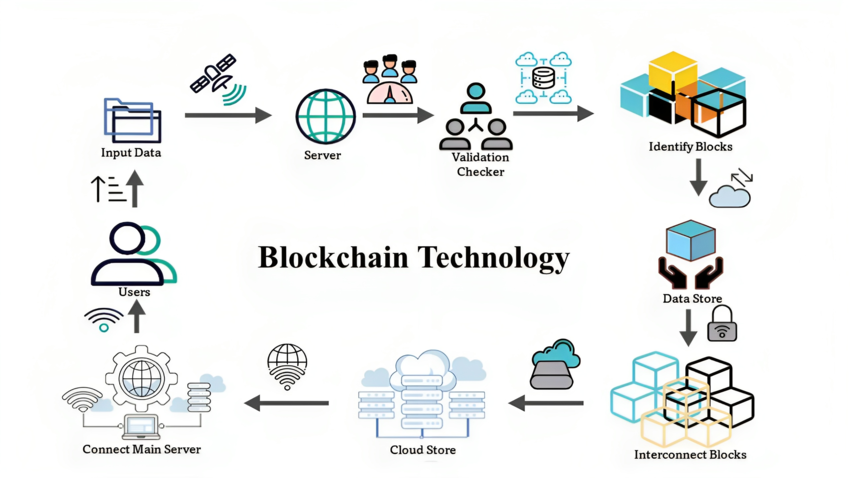8 Blockchain Ideas for Small Businesses

There are many challenges for small and medium-sized enterprises in the current business environment. Despite their role as the backbone of any large economy and a contributor to GDP growth, smaller companies face significant barriers to entry and struggle to catch up with their larger counterparts. The current environment is built for larger companies. These companies monopolize financing, business processes, recruitment, and other essential services, and they can exploit smaller companies.
Blockchain applications for small businesses
With blockchain’s ability to achieve consensus among users, companies have quickly realized that the data infrastructure on a blockchain network is helpful for things beyond cryptocurrency. Blockchain can help bring products and services to market, reduce the high costs of traditional methods, increase security, and improve data storage and other overhead. It also allows companies of all sizes to compete on a higher-level platform.
Small businesses often focus on the surface when they should be focusing on the core processes of auditing, inventory, and payroll, which are frequently overlooked. For tasks such as purchasing platforms like CRM or CMS, hiring new employees, or contracting with other companies, blockchain offers a fundamental solution.
Smart contracts are a very economical option that can help small businesses a lot. Smart contracts use blockchain to create, verify, and enforce contracts between users. These users include merchants and customers. Smart contracts can have a positive financial impact in invoicing, paying employees, insurance issues, closing new contracts, or any other transactional activity.
For small businesses that have a limited budget, a late payment can be a disaster. According to statistics, 40% of small businesses have reported liquidity problems over the past year. Given the certainty of when funds will be received in smart contracts, companies can deliver their services on time.
Innovative contract capabilities are a smart and sustainable move for a new business and its multiple partners, participants, and shareholders. Many business processes that once required personnel, intermediaries, expensive software licenses, subscription fees, and valuable time can be easily replaced with this system.

Startups interested in using smart contracts can take advantage of some of the most basic services in this space. To avoid the initial costs on the Ethereum network, there are companies like Confideal and dApp Builder that can create and launch a complete smart contract portal with just a few clicks.
Significantly reducing overhead costs is one of the advantages of using blockchain. Security and transparency are among the most important features we see in this system. Public and private keys protected by a layer of encryption ensure that a company can provide its services without the need to publish its confidential financial and personal information.
This is a great feature for companies that have large amounts of confidential information. In addition, customers also benefit from their confidential information being kept confidential. A small business that needs its customers’ credit card data can authorize transactions without knowing the user’s identity. This creates a system where only the users have access to their personal information.
Small businesses that want more comprehensive security can use a decentralized blockchain platform instead of buying a centralized server or paying huge fees for services like Amazon or Google. Companies can buy as much local bandwidth or storage as they want, pooled from users around them. This increases data integrity and creates a more efficient application.
Services like these eliminate privacy and ensure that they have the proper cryptographic standards to identify and authenticate their customers. In addition to protecting customer data, companies that are active on blockchain are better positioned to defend against hackers.

Attacks on websites pose a significant challenge for small businesses without IT resources and support. Many companies do not prioritize security in this area. According to statistics, 14 million businesses in the United States have been attacked so far. The bigger problem is that the majority of small businesses that suffer cyberattacks close down within a year.
Due to the decentralized nature of blockchain, hackers who gain access to a website or application on the blockchain would have to simultaneously hack all the nodes in a chain, which makes DDoS attacks difficult and even impossible.
Many companies that are planning to start operating, and many that have just started, have faced numerous challenges. They have taken out loans with high interest rates and required multiple collateral, and many of them have even disappeared at this stage. Investing in a new way using blockchain has made this problem much easier. Startups are trying to raise capital in the market by offering their tokens.
These monetary units gain a fixed value relative to fiat money through transitive relationships. If the company offering the project has high potential for development, the relative value of the token also increases. Regardless of this principle, blockchain has helped to finance thousands of new businesses in fintech, healthcare, gaming, politics, social welfare, and so on. Many see it as an essential competitive option that has many advantages over other methods.

Blockchain is considered one of the most important and innovative technologies in today’s world, and it is creating significant changes in various industries. This technology, which entered the technology scene with the introduction of Bitcoin in 2008, has quickly found many applications. Blockchain is a distributed digital system that stores information in a decentralized and transparent manner, so that this information cannot be changed in any way.
These features have made blockchain a powerful tool for businesses to leverage to improve security, transparency, and efficiency in their business processes. Since its emergence, blockchain has seen significant growth in areas such as financial payments, supply chain management, and even digital identity management. In this article, we will explore the various applications of blockchain in businesses and how this innovative technology can be used to improve business processes.
What is blockchain, and how does it work?
Blockchain is a new technology that stores information in the form of a distributed digital ledger. It consists of blocks of information that are sequentially connected, such that each block contains information from the previous block. These connections are immutable and strong, such that any change to one block automatically affects the other blocks.
This system distributes information across a network of different computers. In this way, there is no need for a central entity to verify and record information, but all network members verify information simultaneously and in a synchronized process. This feature provides high security and transparency.
Blockchain definition in simple language
Imagine you and your friends want to play an online game. But instead of one person keeping track of all the scores, you all sign up for a system from the start, and everything you do in the game is recorded simultaneously in a digital ledger that you all have access to. Now, if someone wants to change their score, they have to record the change in everyone else’s ledger. But no one can do that, because all the information is recorded in a shared system simultaneously. This is precisely how blockchain works. Any change to the information has to be confirmed by all members of the network, so no one can easily tamper with the data.

History of Blockchain
Blockchain technology was first introduced in 1991 to encode digital documents to prevent tampering and maintain data integrity. However, the global adoption of blockchain began in 2008 with the introduction of Bitcoin by Satoshi Nakamoto. Nakamoto used blockchain as the underlying technology to build a decentralized financial system where users could make financial transactions without the need for banks or other intermediaries. This innovation not only attracted global attention but also quickly spread throughout the digital world and was recognized as one of the most important technological achievements of the 21st century. Over time, blockchain technology was not limited to Bitcoin and was also used in many other industries such as healthcare, education, government, and supply chains.

Key Blockchain Technologies (Distributed Ledger, Cryptography, and Smart Contracts)
Let’s now take a look at the core technologies behind blockchain that make this system so secure and transparent.
- Distributed Ledger: This technology means that blockchain information is stored on many computers (or nodes) around the world, rather than in one central location. This feature ensures that no one person can change the information on their own, and the system always remains up-to-date and accurate.
- Cryptography: Cryptography is used in blockchain to protect data. The data of each transaction is encrypted before being stored in the block to prevent tampering or unauthorized access. This feature provides high security for information.
- Smart Contracts: Smart contracts are automated programs that execute automatically when certain conditions occur. These contracts do not require human intervention and make business processes faster and error-free. For example, when a specific condition is met, a payment is made automatically.
These three technologies make blockchain a secure, transparent, and efficient system.
Difference between blockchain and traditional databases
Imagine you have an online store, and your customers’ information and transactions are stored in a traditional database. A central server manages this database, and you, as the store owner, can easily edit the information.
But in blockchain, there is no central server. Instead, information is distributed across a network of different computers, and any data change requires all members of the network to confirm it. This feature makes blockchain more secure and reliable than traditional databases.
Some uses of blockchain for businesses
Blockchain is not only a new technology, but it can also significantly improve business processes. This technology, with its unique features, has revolutionized many industries and businesses. In this section, we have discussed some of the most important benefits of blockchain and its real-world applications.
1. Supply Chain Management
One of the key benefits of blockchain in supply chain management is its high level of transparency. Every action taken in the production and delivery process is recorded in a transparent and immutable blockchain ledger from start to finish. This feature increases the trust of customers and trading partners in businesses, as they can easily ensure the accuracy and integrity of information at every stage of the supply chain.
For example, in the agricultural industry, blockchain can be used to track and verify the source of farm products such as fish. Customers will be able to accurately and transparently know where the products were produced, how they were processed, and how they were transported. This type of transparency and accurate information will give consumers greater confidence in the authenticity and quality of the products, thereby improving business relationships and trust between businesses and customers.
2. Reducing transaction costs and eliminating intermediaries
One of the most attractive features of blockchain is the reduction of transaction costs and the elimination of intermediaries. In traditional systems, financial and commercial transactions usually require intermediaries such as banks or payment companies, each of which has its costs. With the use of blockchain, these intermediaries are eliminated, and transactions are carried out directly between the parties without the need for a third party.
For example, in the area of international payments, this technology can significantly reduce the costs of transferring money. In this system, instead of requiring banks to settle accounts or process transactions, parties can transfer money from one country to another directly and at a lower cost. This method also increases the speed of transfers and minimizes the time required to complete transactions, which results in reducing additional costs and streamlining financial processes.
3. Customer Experience Management System
Blockchain can bring significant changes to customer experience management systems. Using this technology, businesses can record and manage customer experiences in a transparent, secure, and tamper-proof manner. One successful example in this regard is the TravelChain platform, which uses blockchain for decentralized information exchange in the tourism industry. On this platform, tourists share their travel experiences with others and receive digital tokens in return. This process incentivizes them to share their real-life experiences with others and, at the same time, earn money from it.
This approach naturally ensures that no one can manipulate or change the shared experiences, which increases user trust in the platform. Also, businesses can use the authentic and documented data collected from customer experiences to improve their services. This feedback helps companies to identify customer needs accurately and wants and deliver their services in a more efficient and quality manner.
4. Identity management and authentication
Blockchain is very effective in digital identity verification and credit management. Companies can use this technology to verify individuals’ identities, educational credentials, employment history, and other important information. This system reduces identity fraud and speeds up the information verification process.
For example, the University of Melbourne has used blockchain to issue digital certificates. These certificates are immutably recorded on the blockchain to prevent tampering or alteration. Employers or other third parties cannot alter or tamper with the information on the certificates. In addition to increasing the accuracy and speed of document verification, this system helps maintain the security and privacy of individuals. It ensures that the information recorded remains accurate and valid.
Conclusion
Blockchain technology, with its security, transparency, and immutability features, can significantly improve business processes, thereby reducing costs and increasing efficiency. This technology provides unique opportunities for innovation in various industries, including finance and healthcare, as well as in new areas such as DeFi and the metaverse. Familiarity with blockchain is essential for success in today’s world.






